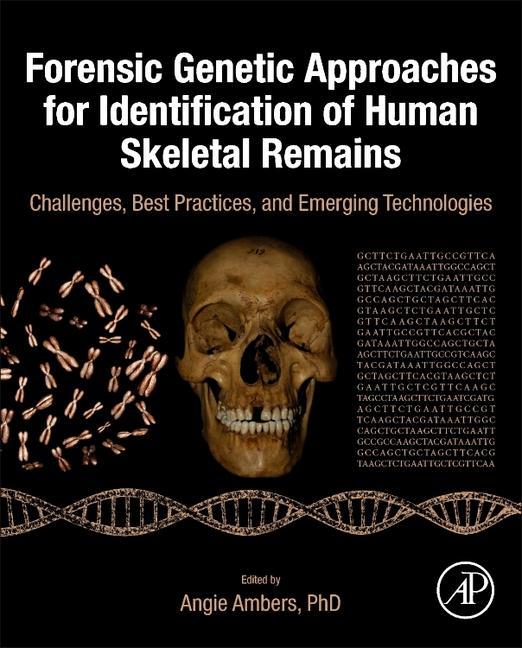
Versand
Kaufberater





Passt nicht? Macht nichts! Bei uns ist die Rückgabe innerhalb von 30 Tagen möglich
 Geschenkgutschein
In einem beliebigen Wert
Geschenkgutschein
In einem beliebigen Wert
Mit einem Geschenkgutschein können Sie nichts falsch machen. Der Beschenkte kann sich im Tausch gegen einen Geschenkgutschein etwas aus unserem Sortiment aussuchen.
Forensic Genetic Approaches for Identification of Human Skeletal Remains
 Englisch
Englisch
 385 b
385 b
30 Tage für die Rückgabe der Ware
Das könnte Sie auch interessieren


Forensic Genetic Approaches for Identification of Human Skeletal Remains: Challenges, Best Practices, and Emerging Technologies provides best practices on processing bone samples for DNA testing. The book outlines forensic genetics tools that are available for the identification of skeletal remains in contemporary casework and historical/archaeological investigations. Although the book focuses primarily on the use of DNA for direct identification or kinship analyses, it also highlights complementary disciplines often used in concert with genetic data to make positive identifications, such as forensic anthropology, forensic odontology, and forensic art/sculpting. Unidentified human remains are often associated with tragic events, such as fires, terrorist attacks, natural disasters, war conflicts, genocide, airline crashes, homicide, and human rights violations under oppressive totalitarian regimes. In these situations, extensive damage to soft tissues often precludes the use of such biological samples in the identification process. In contrast, bone material is the most resilient, viable sample type for DNA testing. DNA recovered from bone often is degraded and in low quantities due to the effects of human decomposition, environmental exposure, and the passage of time. The complexities of bone microstructure and its rigid nature make skeletal remains one of the most challenging sample types for DNA testing. Provides best practices on processing bone samples for DNA testing Presents detailed coverage of proper facilities design for skeletal remains processing, selection of optimal skeletal elements for DNA recovery, specialized equipment needed, preparation and cleaning of bone samples for DNA extraction, and moreHighlights complementary disciplines often used in concert with genetic data to make positive identifications, such as forensic anthropology, forensic odontology, and forensic art/sculpting
Informationen zum Buch
 Englisch
Englisch
Kategorie


 Kontakt
Kontakt Wie einkaufen
Wie einkaufen

















